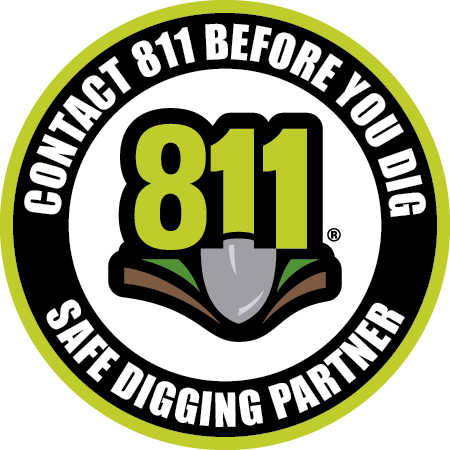We're Your Trusted Partner for Safe and Reliable Natural Gas Service
At SCUD, your safety is our top priority. Natural gas is a powerful resource that can keep your Sevierville home warm and comfortable, but it’s crucial to handle it with care. This page provides essential information on natural gas safety, proper installation practices, and resources to keep your home and family safe.
Did You Know
Natural gas has been used to provide power for homes and businesses across the United States for decades. Each year for the past 70 years, natural gas usage and production have increased steadily.
One safety feature of natural gas is that it is only combustible at a very specific concentration, while anything above or below these amounts will not combust. Another reason natural gas is safe is that it is lighter than air and dissipates quickly, once again decreasing chances for combustion. Because of these and other physical characteristics of the gas, it has an excellent safety record.
Natural Gas Safety Essentials
Natural gas is odorless, but it is a common practice to add a distinctive chemical odorant called mercaptan. S·C·U·D has done this so that you can more easily recognize the presence of natural gas, should you have a leak.
The chemical odor is frequently compared to the smell of rotten eggs. If you smell something like this, please call us immediately.
In the event of an emergency, call the S·C·U·D 24-hour emergency line at 865-453-3272.
How to determine if you have a Gas Leak
- Is there an odor?
- Do you hear air hissing or leaking?
- Are you aware of any damage to the gas line?
- Are you or another member of your family feeling dizzy, faint or ill?
If you answered yes to any of these questions, please contact S·C·U·D by calling (865) 453-3272.
**Please leave your home to place the call to us**
If you have determined (or suspect) you have a Gas Leak, please take the following precautions:
- DO NOT operate electrical Items, including your home telephone
- DO NOT use your cell phone inside the home
- DO NOT operate electrical switches
- DO NOT light matches
- DO NOT hang up the phone, instead lay it down
- DO evacuate the building, but be nearby/available for a S·C·U·D service technician
- DO extinguish any open flame
The best way to promote safety is through education and awareness. We’ve compiled the following list of natural gas safety tips to guide and inform consumers about issues that might be relevant to you. As always, please call our 24-hour safety hotline if you have any questions or need assistance with anything safety-related.
Appliances
- Always read your appliance manuals thoroughly
- Use appliances only for their intended purposes
- Adhere to recommended maintenance schedules
- Call a professional when/if service is needed
Combustibles
- Always use combustible materials only as directed
- Keep paper, fabric and flammable fluids away from pilot lights, open flames and any surfaces that may become hot when the appliance is in use
Safety Precautions for Family, including Children
- Familiarize yourself and your family with gas appliances
- Educate family members about all surfaces that may get hot when in use, including vent pipes
- Never allow children to play with or adjust appliance controls
- Schedule annual inspections and cleanings of heating systems, vents, flues and chimney with a professional service provider
- Stay alert by conducting your own visual inspections, looking for improper connections, rust, stains or water build-up
- Never leave your car running in a garage
- Never use gas or charcoal grills in an enclosed area
- Install carbon monoxide alarms on every level of your home, especially near bedrooms
If you suspect carbon monoxide is present, get fresh air immediately and call 911
Carbon Monoxide Safety
Carbon Monoxide, a gas without color, odor or taste, is produced when gasoline and other fuels burn. When there is inadequate ventilation, Carbon Monoxide can become concentrated and have severe consequences, such as poisoning.
The most common sources of Carbon Monoxide are automobiles, furnaces and boilers that have not been properly maintained. Nobody is immune to Carbon Monoxide poisoning, but pregnant women, small children, older citizens, and people with heart or respiratory issues are more at risk.
How to tell if you might have Carbon Monoxide Poisoning
- Do you have flu-like symptoms? (nausea, dizziness, drowsiness, vomiting, confusion)
- Are you disoriented? Often, victims become aware they aren’t well, but are too disoriented to save themselves.
Construction Safety
Before beginning any type of demolition work or construction project, please call 811 or visit https://www.tenn811.com. This will allow you to avoid any service interruptions and costly delays as well as prevent unnecessary accidents and injuries. Click here to learn more about construction safety.
Excess Flow Valve
An Excess Flow Valve (EFV) is designed to shut off if the service line is severed. For more information click here.
